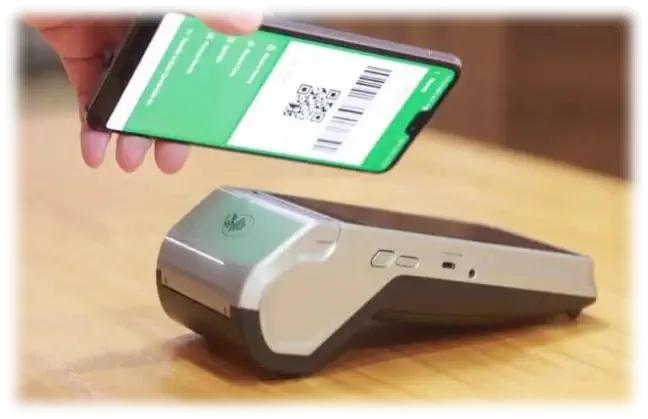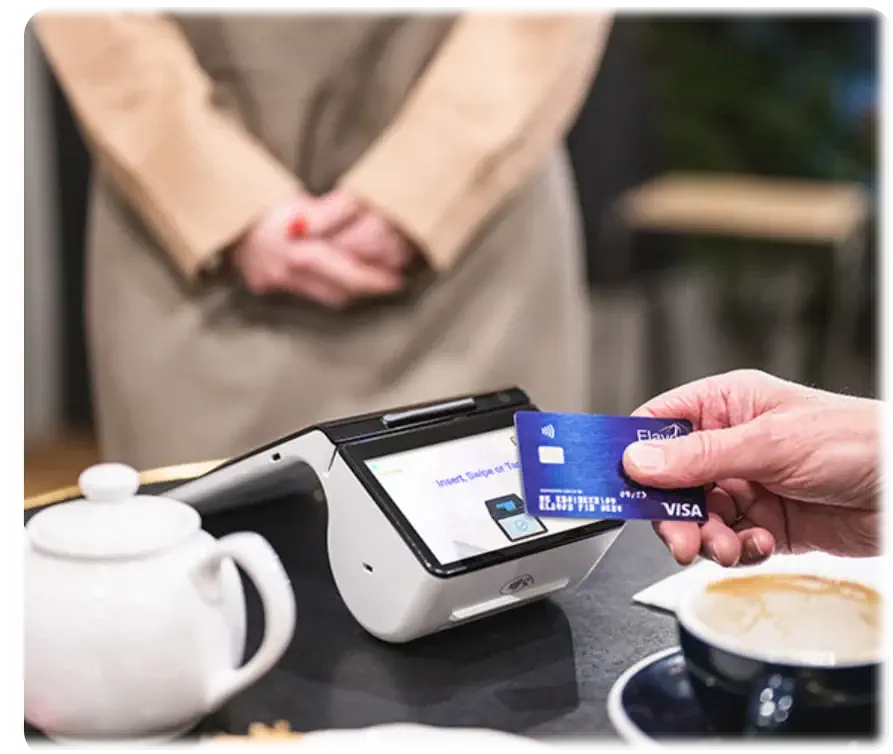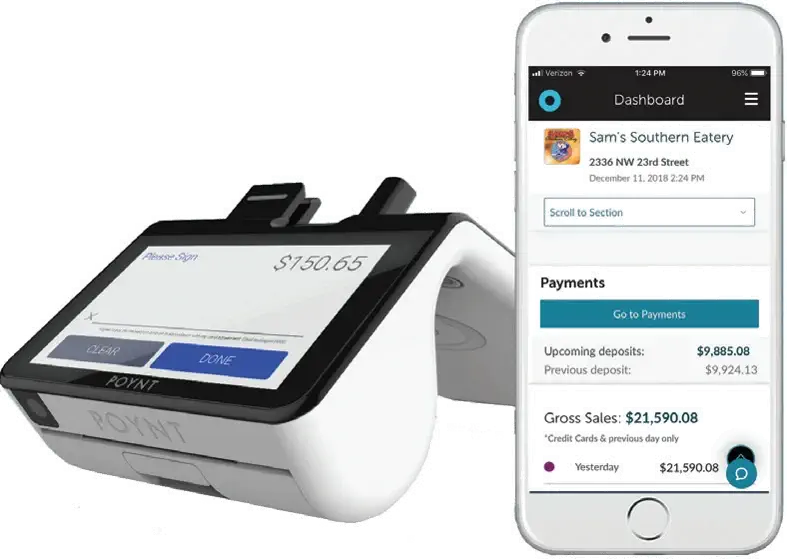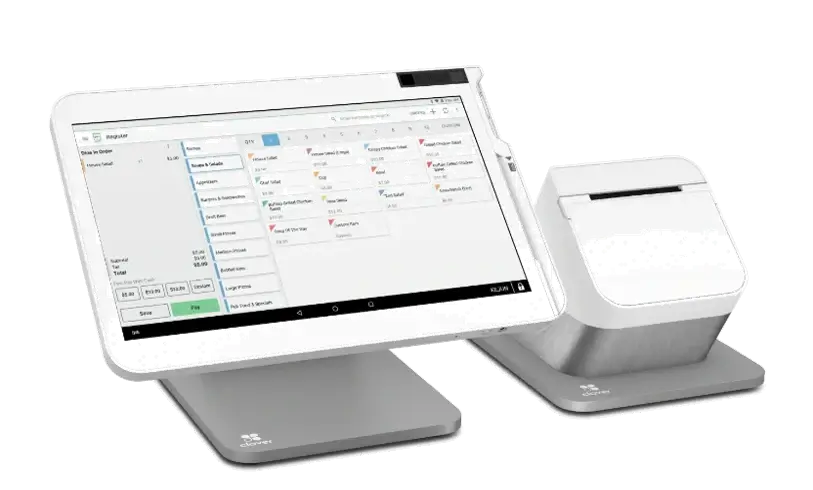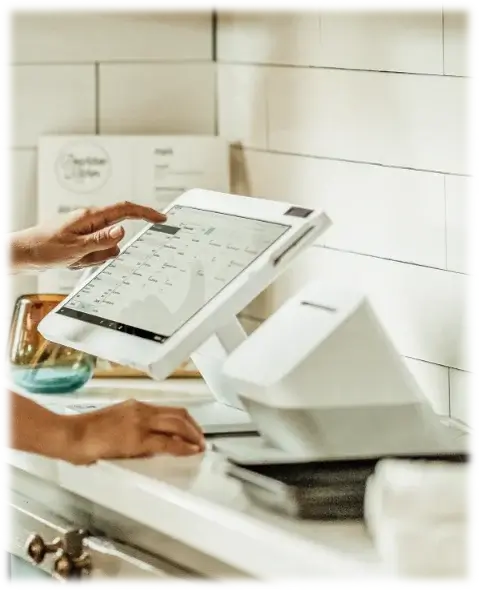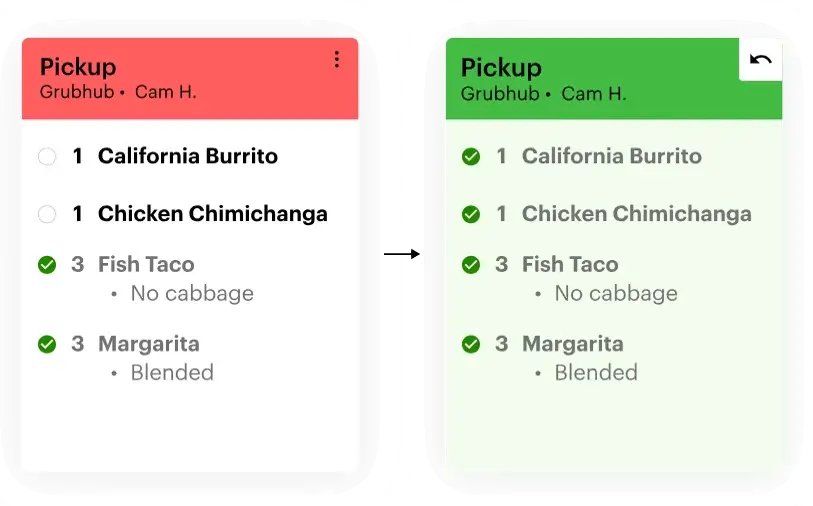Understanding And Choosing A Retail Merchant Account For Business Owners In The USA
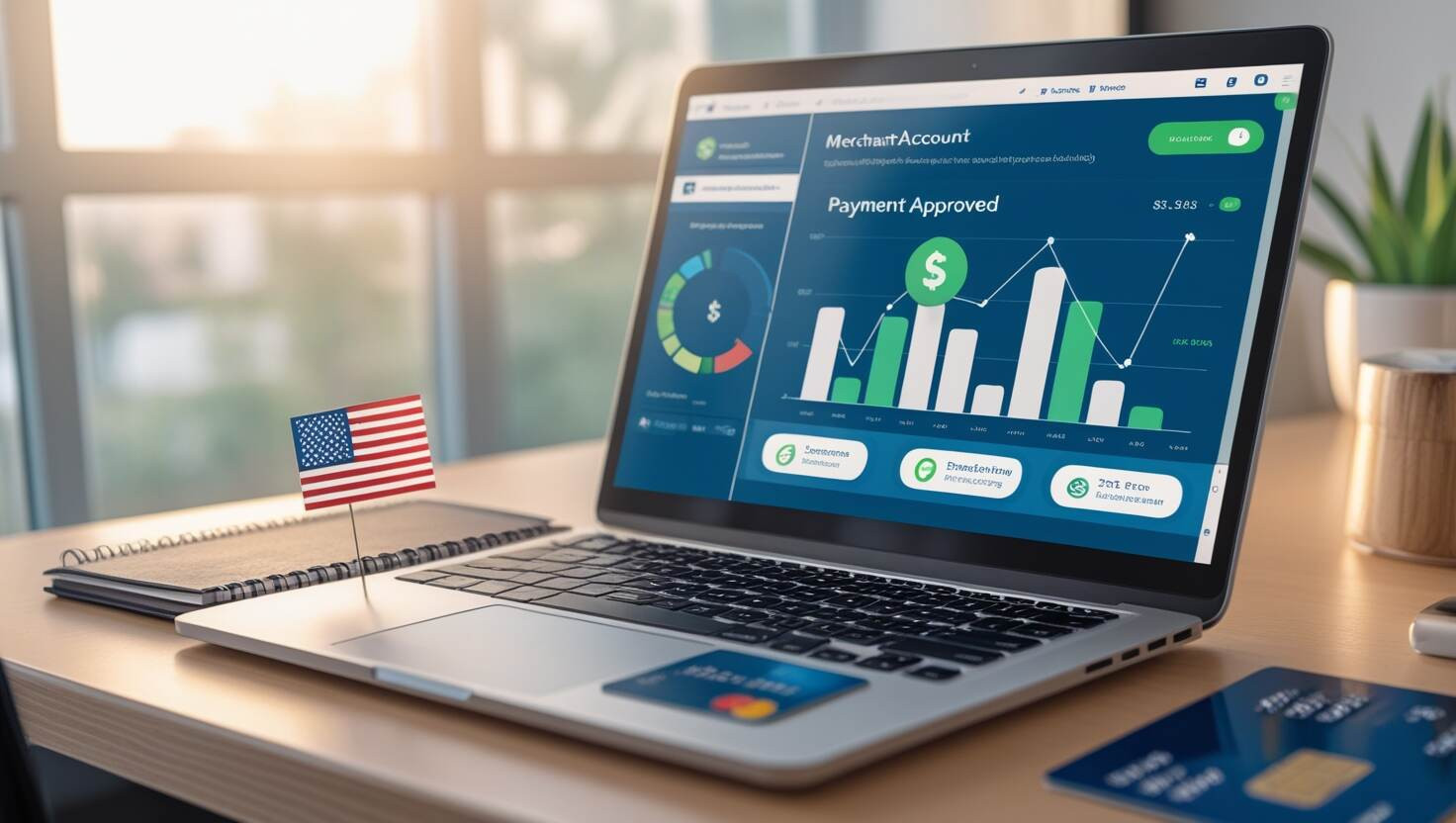
Are you a retail business owner seeking to accept credit card payments with ease or searching for the best retail merchant account deals? You're at the correct location. In this detailed guide, we're going to cover everything you need to know about retail merchant accounts, from their definition and characteristics to tips on how to evaluate and select the most suitable, affordable retail merchant account in the USA. In addition, we'll address your most important questions—so that you can walk through the world of retail merchant solutions with confidence and open up growth opportunities for your company.
What Is A Retail Merchant Account And Why Is It Necessary For Your Business?
In simple terms, what is a retail merchant account? It's a business bank account that enables retail merchants to process credit and debit card payments from shoppers, both in-store and online. It's the payment gateway that links your retail store or e-commerce website to the card networks, providing secure and easy payment processing.
Why is it necessary? Today's consumers like to pay with credit cards, mobile payments, and digital wallets. Without a retail merchant services account, your retail business or online store is at risk of losing sales and trust. Whether you have a brick-and-mortar retail shop, an online retail merchant account, or both, a retail merchant account is the pillar of streamlined payment processing, paying you instantly and securely.
Key takeaway: A retail merchant account is the fiscal link that simplifies acceptance of card payments to become easy, secure, and trustworthy, ultimately allowing your retail business to thrive.
How To Know The Best Retail Merchant Account Provider For Your Business?
What Do I Look for in a Retail Merchant Account? When comparing various retail merchant solutions, look for the following essential features:
- Competitive retail merchant account pricing: Find the top retail merchant account with transparent pricing, such as per-transaction fees, monthly fees, and PCI compliance fees.
- Excellent retail merchant services credit card processing: Make sure the provider is known to provide trustworthy, instant, and safe payment processing solutions.
- Compatibility with your POS or eCommerce platform: Irrespective of whether you have a retail store with a card reader or an online retail merchant account, compatibility is essential.
- Excellent customer support: A reliable provider will provide 24/7 support to rectify any issues immediately.
- Security and compliance: The top retail merchant account providers comply with PCI DSS standards, safeguarding your customer information and your business.
Some of the most popular merchant account services for retail include providers such as Square, Stripe, PayPal, and more specialized retail merchant account providers such as Chase Merchant Services and PNC Merchant.
How To Compare Various Retail Merchant Account Providers?
How does a merchant account function? It is a collaboration of your business, the merchant account provider, and the customer's bank to efficiently process payments. When a customer pays using a credit card, the transaction gets authorized, processed, and settled into your business bank account.
To compare the top 7 best retail merchant account providers, use:
- Pricing model: Is it competitive? Are there monthly fees, setup fees, or per-transaction fees like the standard merchant account fees?
- Settlement times: How fast is the transfer of funds to your business checking account?
- Multiple payment method support: Does it support credit cards, debit cards, mobile payments, and online payments?
- Integration abilities: Does it efficiently integrate with your POS system, Shopify merchant account, or online store?
- Reputation and reviews: Ensure there is good customer support and positive user reviews.
Tip: Always enquire about the best cost-effective retail merchant account solutions in your locality, particularly in the USA, to acquire the best competitive rates and features.
What Are The Top Advantages Of Retail Merchant Accounts?
Why might you want a retail merchant account? Here are the top advantages of retail merchant accounts:
- More sales volume: Credit card acceptance brings more customers to your online store or retail store.
- Quicker payments: funds are quickly transferred to your retail account merchant, enhancing cash flow.
- Better customer experience: multiple payment choices make shopping easier.
- Improved record-keeping: Precise transaction information facilitates accounting, tax reporting, and customer analysis.
- Professional image: Having a dedicated merchant account for retail raises your business's professional image.
Fun fact: Several retail merchant service providers also provide point of sale (POS) system integration, which streamlines the checkout process for you as well as your customer.
What Are The Common Challenges When Setting Up A Merchant Account And How To Overcome Them?
What are typical challenges? These include:
- Merchant account requirements: You’ll need a valid business license, a good credit score, and sometimes a history of processing payments.
- High setup fees and processing costs: To get the best retail merchant account, compare providers and look for thrifty payment options.
- Security issues: Make sure your provider adheres to PCI DSS standards to secure customer information.
- Long onboarding process: Some underwriting processes of merchant account providers take a long time. Have all the documents ready.
- Risk management: Some industries may incur increased transaction fees or be denied access. Always find out if your industry is qualified.
How to beat them? Do research, compare the best retail merchant account providers, and select a provider that has transparent pricing and great support. Remember, the best retail merchant account is the one that suits your business requirements.
How Much Does It Cost To Open A Retail Merchant Account?
What is a merchant account fee? It depends on the provider, but typical costs are:
- Setup or application fee: Many providers charge an upfront one-time charge.
- Monthly fee: To keep the account open.
- Per transaction fee: Typically, a percentage of each sale or a flat rate.
- PCI compliance fees: For upholding security standards.
- Chargeback fees: In case of a customer's dispute over a charge.
Is a merchant account free? Not typically, but some providers, particularly the best online merchant account providers, might have cheap plans. Frugal payment providers provide affordable solutions for small and medium-sized retail businesses.
Tip: Always compare the top USA retail merchant account providers on a total cost basis, rather than on a per-transaction basis.
How Do I Make Sure My Retail Merchant Account Safeguards Customer Information?
Why is security so important? Because retail merchant services credit card processing entails private customer data. A breach not only costs you money, but it also harms your reputation.
How does a retail merchant account make it secure? Providers have to meet PCI DSS requirements, encrypt payment information, and provide secure card reader solutions.
What is PCI compliance? It's a collection of security standards meant to safeguard card data during processing. Selecting a retail merchant service that meets these standards keeps your business and customers secure.
Pro tip: Always check your merchant account provider's security features, particularly when taking card payments online or through mobile merchant accounts.
Step-by-step Guide To Applying For A Retail Merchant Account
How to obtain a merchant account? Here's a quick guide:
Compare and research providers with the best affordable retail merchant accounts.
- Collect required documents: Financial statements, bank statements, tax ID, and business license.
- Fill out the application: Usually online for convenience.
- Underwriting process: Your provider evaluates your business’s risk profile.
- Approval and setup: Once approved, integrate the merchant account with your POS system or online store.
- Test the system: Ensure the payment process runs smoothly.
- · Start accepting payments: Promote your payment options to your customers.
Having trouble? Most providers will provide merchant account installation and walk you through it.
How Do I Integrate My Retail Merchant Account With My Pos System?
What's the best way? Most retail merchant solutions offer integration with various POS systems, including Shopify merchant accounts, Square, and custom POS configurations.
Tips from the experts:
- Select a merchant card processor account, Shopify, or compatible POS systems.
- Utilize merchant account credit card processing solutions that offer hardware, including card readers and terminals.
- Make your payment gateway secure and PCI compliant.
- Test the whole setup before going live to prevent hiccups during busy hours.
Pro tip: Several providers, such as Versapay and Moneris merchant services, provide full-service merchant account solutions with hardware, software, and exceptional support.
What Are The Future Trends In Retail Merchant Accounts And Payment Processing?
Where is retail merchant processing going? Look for more:
- Contactless and mobile payments, such as NFC and digital wallets.
- AI-based fraud detection tools to improve security.
- Integration with eCommerce platforms such as Shopify, WooCommerce, and Magento.
- Bolder analytics and reporting to maximize sales.
- More affordable retail merchant services for small companies.
Why should you care? Getting ahead with innovative retail merchant solutions enables you to adapt quickly and remain competitive.
Frequently Asked Questions
1. What is a retail merchant?
ANS) A retail merchant is a business that sells goods or services directly to customers, typically in a brick-and-mortar store, online, or both.
2. What is the purpose of a merchant account in retail payments?
ANS) It enables retail merchants to securely accept credit and debit card payments, facilitate faster transactions, and enhance the customer experience.
3. What is an example of a merchant account?
ANS) An example is a Shopify merchant account, which enables an online retail store to accept credit card payments through integrated payment solutions.
4. How to obtain a merchant account?
ANS) Apply through a reputable merchant account provider, submit necessary documents, and wait for underwriting approval.
5. How much does it cost to open a merchant account?
ANS) Costs vary but generally include setup fees, monthly charges, and transaction fees. Comparing providers like Thrifty Payments ensures affordable options.
6. Who qualifies as a merchant?
ANS) Anyone with a valid business license and a good credit history can qualify, though some high-risk industries may face higher fees.
7. Who provides a merchant account?
ANS) Banks, fintech companies, and specialized merchant service providers like Chase, PNC, or Square.
8. Is a merchant the same as a vendor?
ANS) Not exactly. A merchant is a business that sells goods/services, while a vendor supplies those goods/services.
9. What do I need to become a retail merchant?
ANS) A valid business license, a merchant bank account, and a payment processing setup.
10. How do I get an MMC card?
ANS) This is typically through your bank or payment processor once your merchant account is approved.
11. What makes a person a merchant?
ANS) Selling goods or services directly to customers and having a merchant account to process payments.
12. Is a merchant account free?
ANS) No, but some providers offer low-cost or free trial options; always check total costs.
13. What credit score do you need for a merchant account?
ANS) Generally, a good credit score helps, but it isn’t always necessary—high-risk industries may require additional security measures.
14. Which bank is best for a merchant account?
ANS) It depends on your business needs, but top options include Chase, PNC, and specialized providers like Moneris.
15. How to get a free merchant account?
ANS) Some providers offer promotional rates or free setup, but beware of hidden fees or higher transaction costs.
Final Tips For Choosing The Best Retail Merchant Account For Your Business Requirements
- Compare different providers: Check the best retail merchant account providers in the USA for the best affordable retail merchant accounts.
- Prioritize security: Select a provider that is compliant with PCI DSS standards.
- Assess cost structure: Know all the fees, such as per transaction and monthly payments.
- Check integration capabilities: You want to make sure that it is compatible with your POS or eCommerce system.
- Consider customer support: Good, 24/7 support can save you a headache.
- Look for scalability: As your volume increases, your merchant account must be able to keep up.
In Conclusion
Selecting the correct retail merchant account is a crucial step towards simplifying your retail business's payment processing and boosting sales. By learning about what a retail merchant account is, analyzing the best providers, and looking at future trends, you set your company up for success in today's competitive retail market.
Keep in mind, the best retail merchant account is not about the lowest fees—it's about security, reliability, and support specific to your requirements. Suppose you're opening a retail store, an online shop, or both. In that case, the correct merchant services can securely and effectively help you process credit card payments, opening up new growth opportunities.


